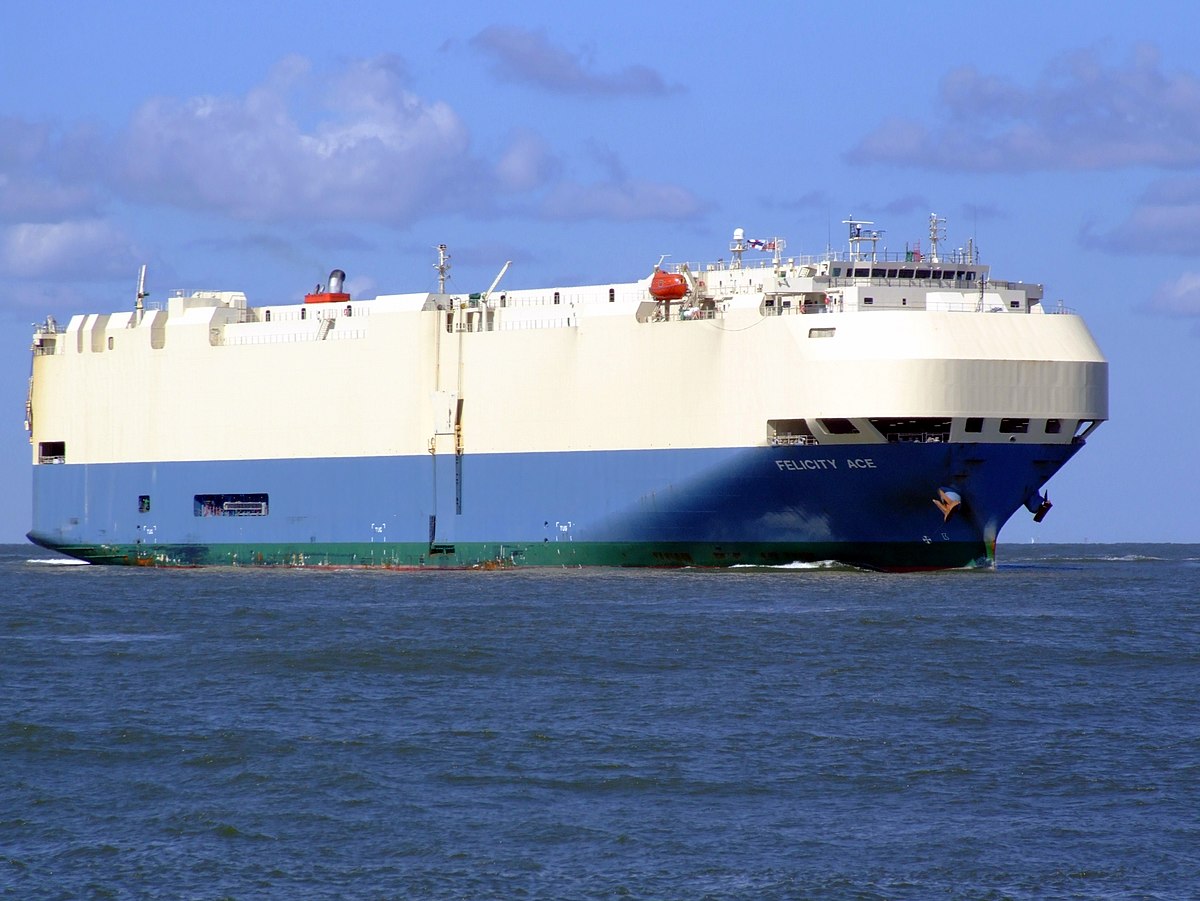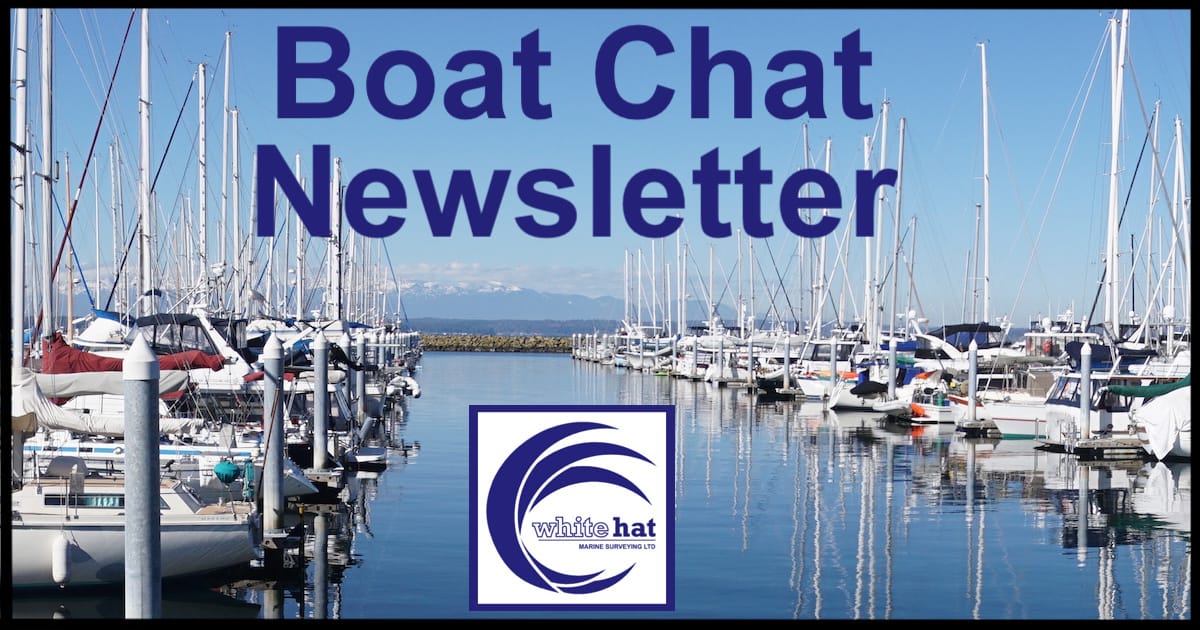
Maritime news, maintenance advice, surveying tips, product reviews and other boat related stuff.
Maritime News
Car Carrier Catches Fire
The biggest maritime news story this past fortnight has been the fire on board the Panama flagged bulk vehicle carrier MV Fremantle Highway. The vessel’s cargo of 3783 new cars included 498 Electric Vehicles. Crew reported that a fire was first detected in the EV section. Thermal runaway of a lithium based battery pack in one of the EVs is the most likely cause for such an intense fire which the crew were not able to bring under control. One crew member has been reported dead and about 20 injured. At time of writing the fire was reported to be under control, the vessel still afloat and salvors were looking to establish a tow to a port of refuge.
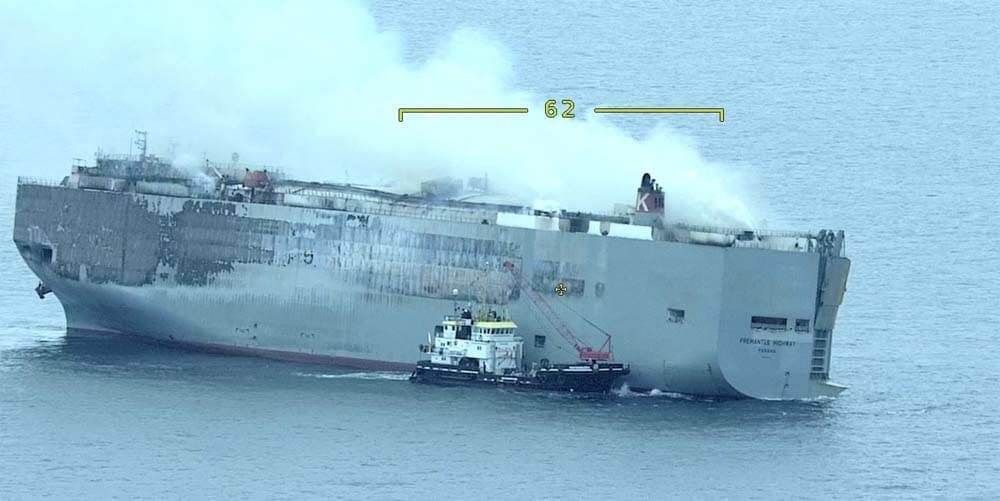
Photo: Dutch Coastguard
In rather similar circumstances, car carrier MV Felicity Ace caught fire on 16th Feb 2022 en route from Emden, Germany to Rhode Island, USA. Despite salvage efforts to save the ship, she capsized in heavy weather on 1st March and sank in 3000m of water (link below).
The safety of EVs in general has been a regular feature in the news media around the world as the serious nature and impact of lithium battery fires are becoming better understood. The Norwegian shipping company Havila Kystruten will no longer allow electric cars on some of its ships. Elsewhere, civic authorities in Copenhagen, Denmark have developed a novel fire containment system for dealing with EV fires (link below).
For boat owners, the prospect of operating a vessel with a lithium based battery bank deserves some thought. When lithium battery banks fail they do so very quickly, typically producing large volumes of harmful gasses before an extreme exothermic event (exploding). The thought of dealing with a heavy, very hot, potentially explosive mass secured below the waterline within a fibreglass hull is daunting. In both car carrier fires, the crew attempted to fight the fire but the intensity and nature of the fire led both crews to abandoning ship very soon after. On a small craft with few fire fighting resources, the outcome is likely to be similar.
Boat Maintenance Tips
CO And Fire Detection On Small Craft
It is all too common during marine surveys to find no means of carbon monoxide or fire detection on board. This is alarming and most common on privately owned yachts and motor boats kept on the coast. Carbon monoxide detectors have been mandatory on UK inland waterways vessels since 2019 but amazingly there is still no requirement for UK private vessels at sea to have any fitted.
Every year hundreds of people are tragically killed by carbon monoxide poisoning. Some of these deaths occur on boats and any boat with an enclosed cabin and an engine, gas cooker or boiler, solid fuel stove or paraffin lamp really should have carbon monoxide and smoke detectors. They aren’t expensive and could save you and your families’ lives.
This issue is explored further in a recent YouTube short video.
Surveyor’s Top Tip
Checking the carbon monoxide and smoke / fire detection capability is an essential part of any survey. If none is fitted it should be highlighted in the survey report.
“No carbon monoxide detectors or smoke alarms were noted during survey. This is a serious detraction in any vessel with an enclosed cabin and an internal combustion engine and gas stove. Given the relatively cheap cost of modern sensors, sufficient detectors made to a recognised international standard should be installed in suitable locations throughout the vessel”.
Action Needed (Significant):
Fit sufficient carbon monoxide detectors and smoke alarms in suitable locations
If fitted, they should be checked to ensure they were made to the correct standard and most importantly that they work. It is astounding that so many detectors are installed but are found with either flat batteries or no batteries at all!
For ‘sealed units’ the battery life is typically 5-10 years and the date of manufacture should be marked on the back. Comment on the date of manufacture if it is marked or if none is seen, recommend replacement.
Product Review
Carbon Monoxide And Smoke Alarms
Carbon monoxide detectors and smoke alarms are relatively low cost, long lasting safety critical items that really should be fitted on any vessel with an enclosed cockpit or cabin. The UK standard for CO detectors is BS EN 50291-2:2019, this standard is higher than the domestic standard 50291-1. For smoke alarms the relevant UK standard is BS EN 14604:2005.
Most modern CO detectors come fitted with sealed batteries with a 5-10 year lifespan and can either be standalone units for smaller vessels:
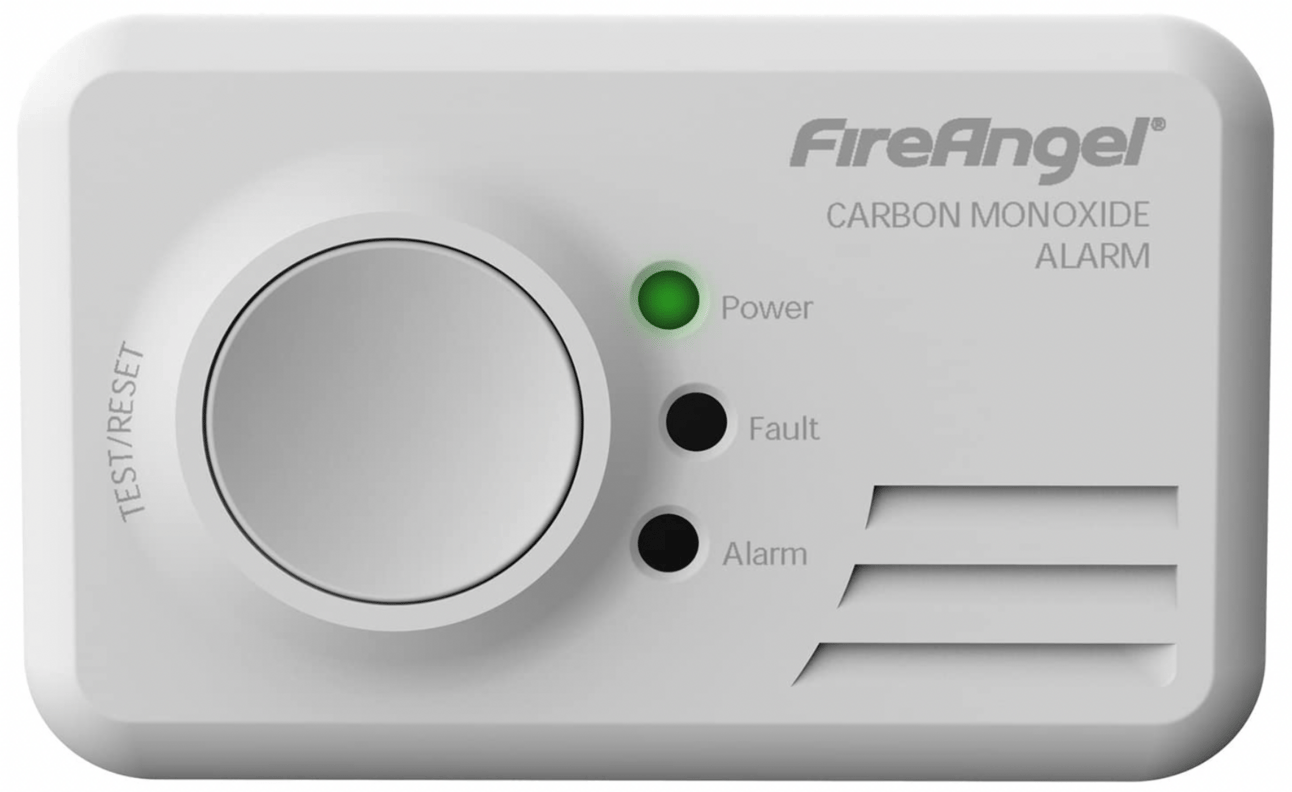
FireAngel CO-9X-10T-FF - https://amzn.to/3rjyiVl
For larger vessels with multiple cabins, wi-fi linked detector units may be more appropriate:
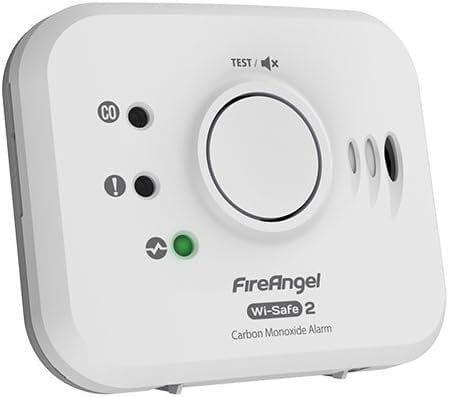
FireAngel W2-CO-10XT - https://amzn.to/46BO3qH
Optical sensor smoke alarms with ‘sealed for life’ batteries and hush buttons are considered best for boats. Also called Photoelectric alarms, these are less prone to false alarms when cooking. The FireAngel FA6620-R is a good example:
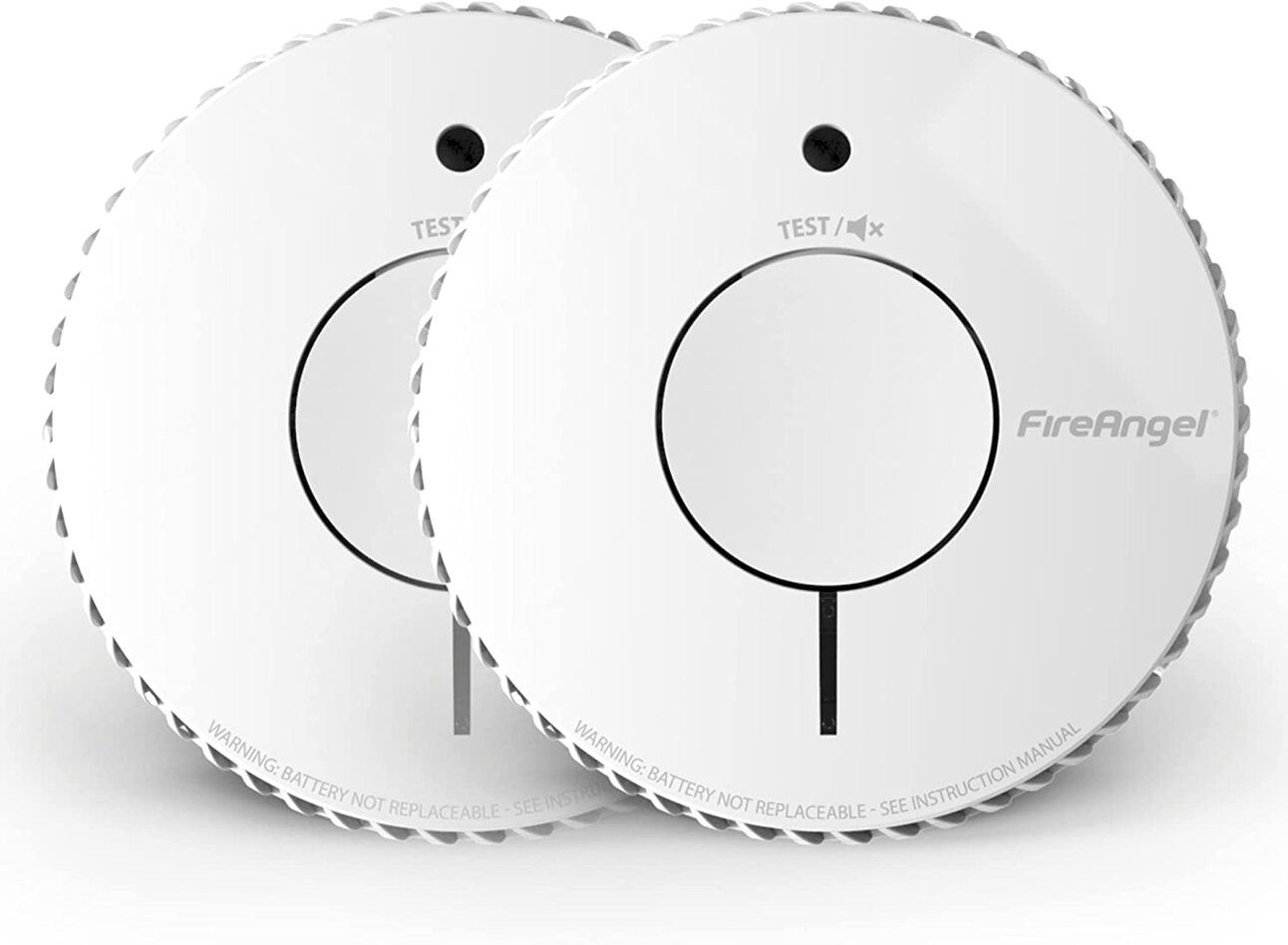
FireAngel FA6620-R - https://amzn.to/3rV3lHl
FireAngel Safety Technology Group PLC is a UK based designer of smoke alarms, CO detectors and other home safety equipment. They are based in Coventry and their shares have traded on AIM since 2014.
More Great Kit Ideas
For more great kit ideas for your boat, bookshelf or surveyor’s toolbox have a look at our page on Kit.Co
Boaty Terminology
Abandon Ship! - An order given by the Captain / Master or a delegated person in command. Typically given as a last resort when all possible options to save the ship have been tried and the loss of the vessel is considered imminent. Typically followed by an order to ‘man the lifeboats’.
Links To Further Reading
How To Support Boat Chat
Boat Chat’s mission is to ‘Help People Understand Boats Better’ by looking at what is going on in the world of boating. Helping people make sense of current maritime events, offering suggestions on how to make the best / minimise the worst boating outcomes and reviewing books and products of interest to boaters.
The easiest way to support Boat Chat is by buying us a beer at:
N.B. Links to products in this newsletter are typically Amazon Affiliate Links which may earn Boat Chat a small commission should you buy them using the link (this does not affect the cost you pay).



